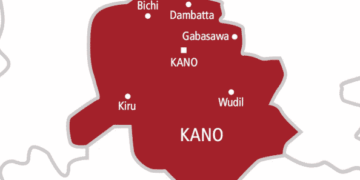In commemoration of the United Nations’ World Environment Day, Tetra Pak has launched its 25th Sustainability Report, showing a 20 per cent reduction in its value chain greenhouse gas (GHG) emissions.
This brings its total operational GHG emissions reduction since 2019 to 47 per cent, according to the report which tracks the progress the company has made against its sustainability agenda. It focuses on five interdependent areas: food systems, circularity, climate, nature and social sustainability.
The 47 per cent cut in GHG puts Tetra Pak on track to meet its target of net zero GHG emissions in its own operations by 2030 and supports the company’s long-term ambition to work together with suppliers, customers and other stakeholders and achieve net-zero GHG emissions across the value chain by 2050.
Commenting on the report, President and Chief Executive, Tetra Pak, Adolfo Orive, said “collaboration across the food industry is ever more important to feed a growing population sustainably.
Our global presence and end-to-end solutions give us opportunities every day to collaborate with stakeholders across the value chain, from farmers and food producers, to suppliers, policy makers, consumers and others.
“We understand the responsibility that comes with this role. We remain committed to playing our part to transform the world’s food systems, to ensure they are more secure, resilient and sustainable.”
Tetra Pak’s Sustainability Report FY23 also showed that the company helped 64 million children in 49 countries to get access to milk and other nutritious beverages through School Feeding Programmes. Also, the amount of carton packages collected and sent for recycling across the world rose by seven compared to 2022, with a 14 per cent increase in the volume of polyAl sent for recycling.
Another major milestone saw the launch of an aseptic beverage carton featuring a paper-based barrier, reducing its carbon footprint by a third and bringing the company a step closer to developing the world’s most sustainable food package. This world-first was a result of a €100 million investment in packaging research and development in 2023, with the same investment planned annually for the next five to 10 years.




